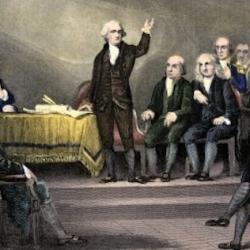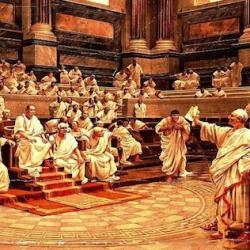In a NYRB review of Anthony Gottlieb’s Dream of Enlightenment, Thomas Nagel corrects Gottlieb’s account of Hobbes’s moral philosophy. He lucidly summarizes Hobbes’s moral argument for absolutism:
Hobbes’s theory, and what led to his being attacked as a moral nihilist, was his refusal to appeal to any concern for the good of others or the collective good as a basis for moral motivation. He demonstrated that the familiar rules of morality, which he called the laws of nature, are principles of conduct such that if everyone follows them, everyone will be better off. But the fact that everyone will be better off if everyone follows them gives no individual a reason to follow them himself. He can have a reason to follow them only if that will make him individually better off. And there is no natural guarantee that individual self-interest and the collective interest will coincide in this way. Hobbes concluded that although we all have a reason to want to live in a community governed by the moral rules, we cannot achieve this unless we bring it about that it is in each person’s individual interest to abide by those rules. And the method of doing that is to agree with one another to support a powerful sovereign with a monopoly on the use of force, who will use it to punish violators. Only then can each individual be confident that if he obeys the rules, he will not be laying himself open to assault and dispossession by others. Without the trust engendered by the knowledge that violators will be punished, civilization is impossible and individual self-interest—the same rational motive that supports morality—leads to perpetual conflict and constant insecurity. This is the famous Hobbesian state of nature, and Hobbes was most notorious for saying that in this condition, we are almost never obligated to obey the moral rules, because it is not safe to do so.
As Hobbes himself put it, “The laws of nature oblige in foro interno; that is to say, they bind to a desire they should take place: but in foro externo; that is, to putting them in act, not always. For he that should be modest, and tractable, and perform all he promises, in such a time, and place, where no man else should do so, should but make himself a prey to others, and procure his own certain ruin, contrary to the ground of all laws of nature, which tend to nature’s preservation.”
Nagel concludes, “Appalled by the disorders of the English civil war, Hobbes did not believe in the possibility of limited government: he thought sovereign power had to be absolute and undivided, and that it extended to prescribing the forms of religious worship, since religious conflict was a major source of civil instability. Hobbes held that we were released from our obligation to obey the sovereign only when he lost the ability to protect us.”
Absent an invisible guiding hand, self-interested humans won’t live in harmony. They need a visible, and heavy, hand. Absolutism thus emerges from twin premises: Disbelief in Providence, and a modernized Stoic belief that human beings act out of self-interest and a need for self-preservation. So long as the anthropology is held in check by a belief in God, you get classical liberalism. Scrape away Providence, and the same anthropology justifies absolutism.















